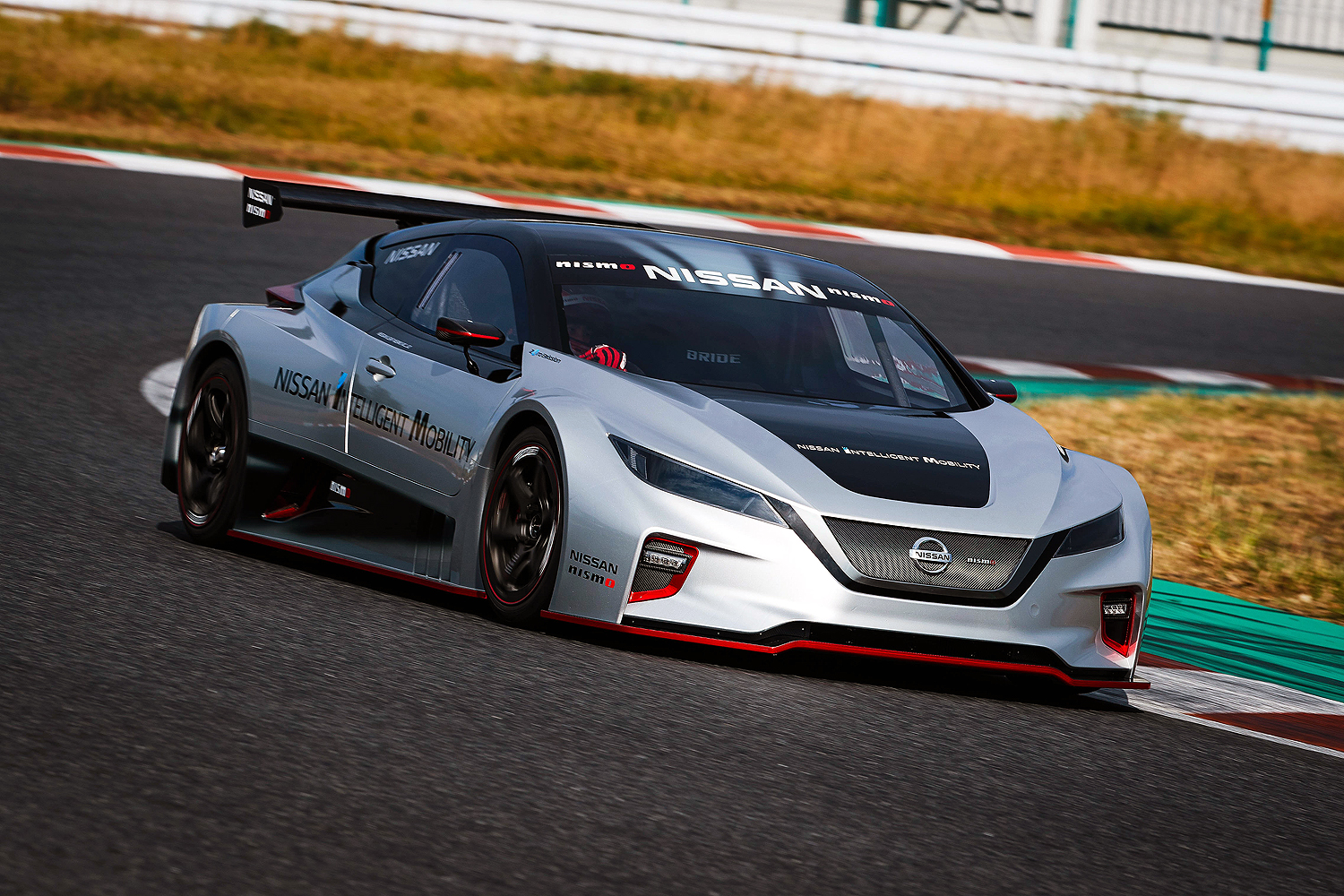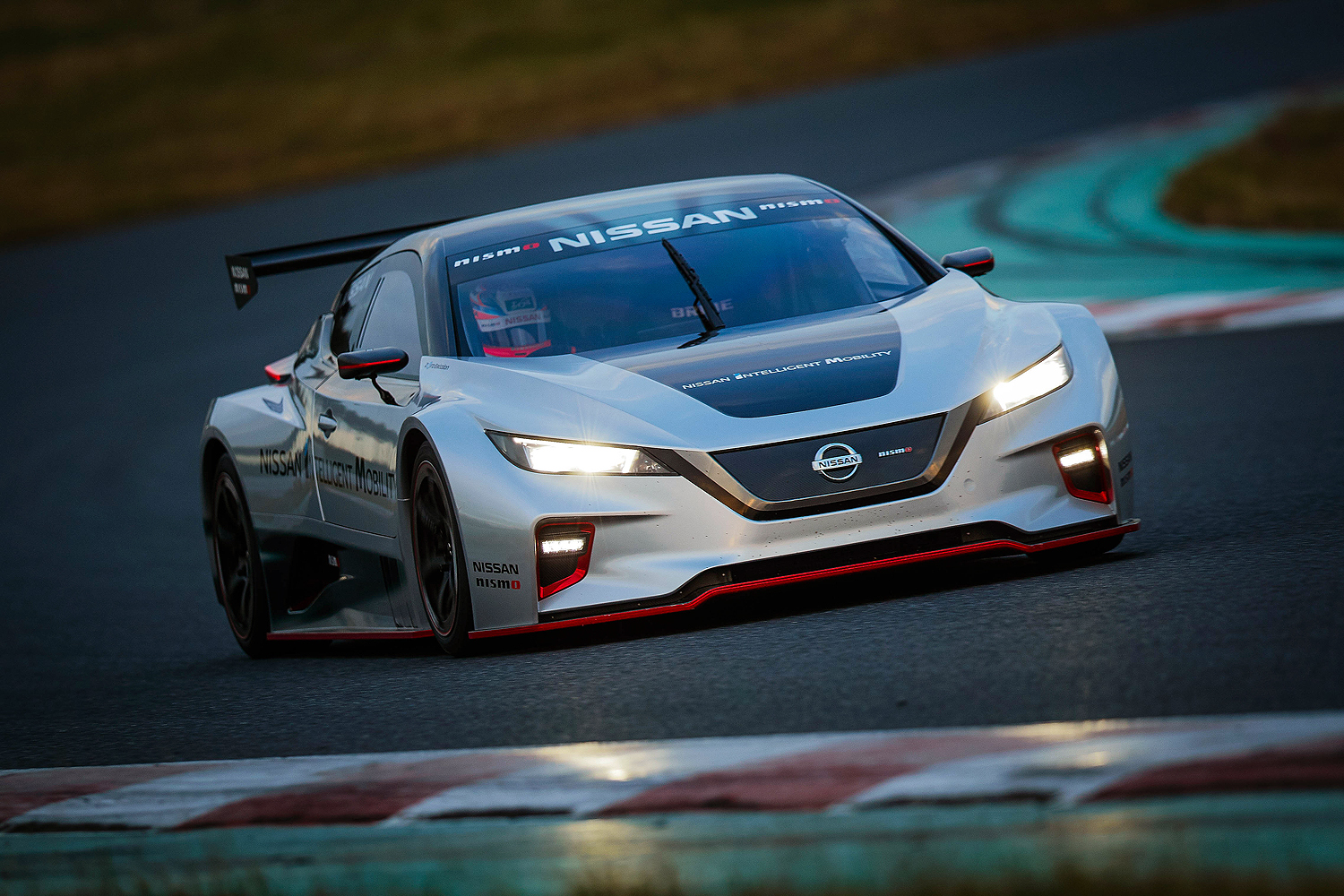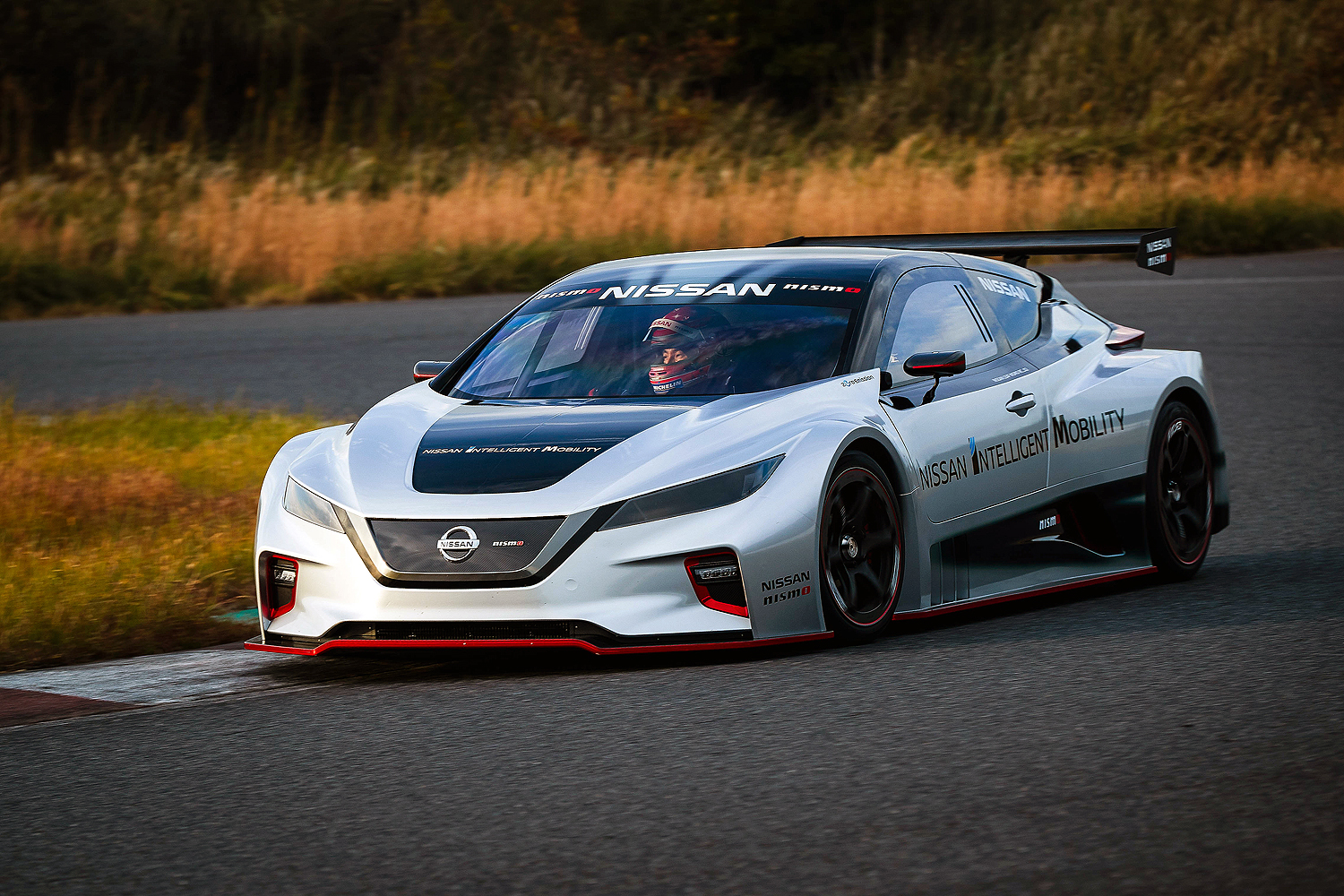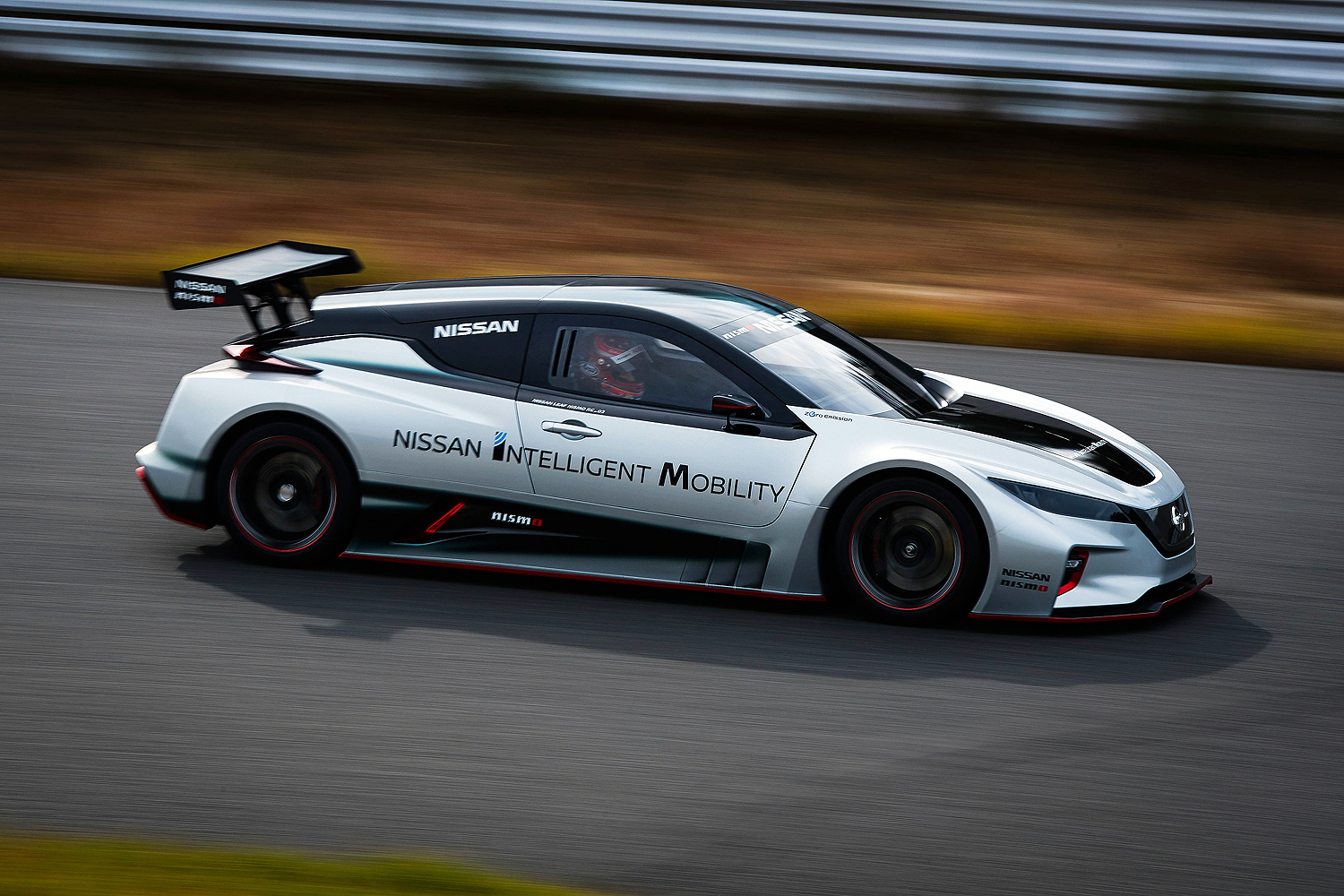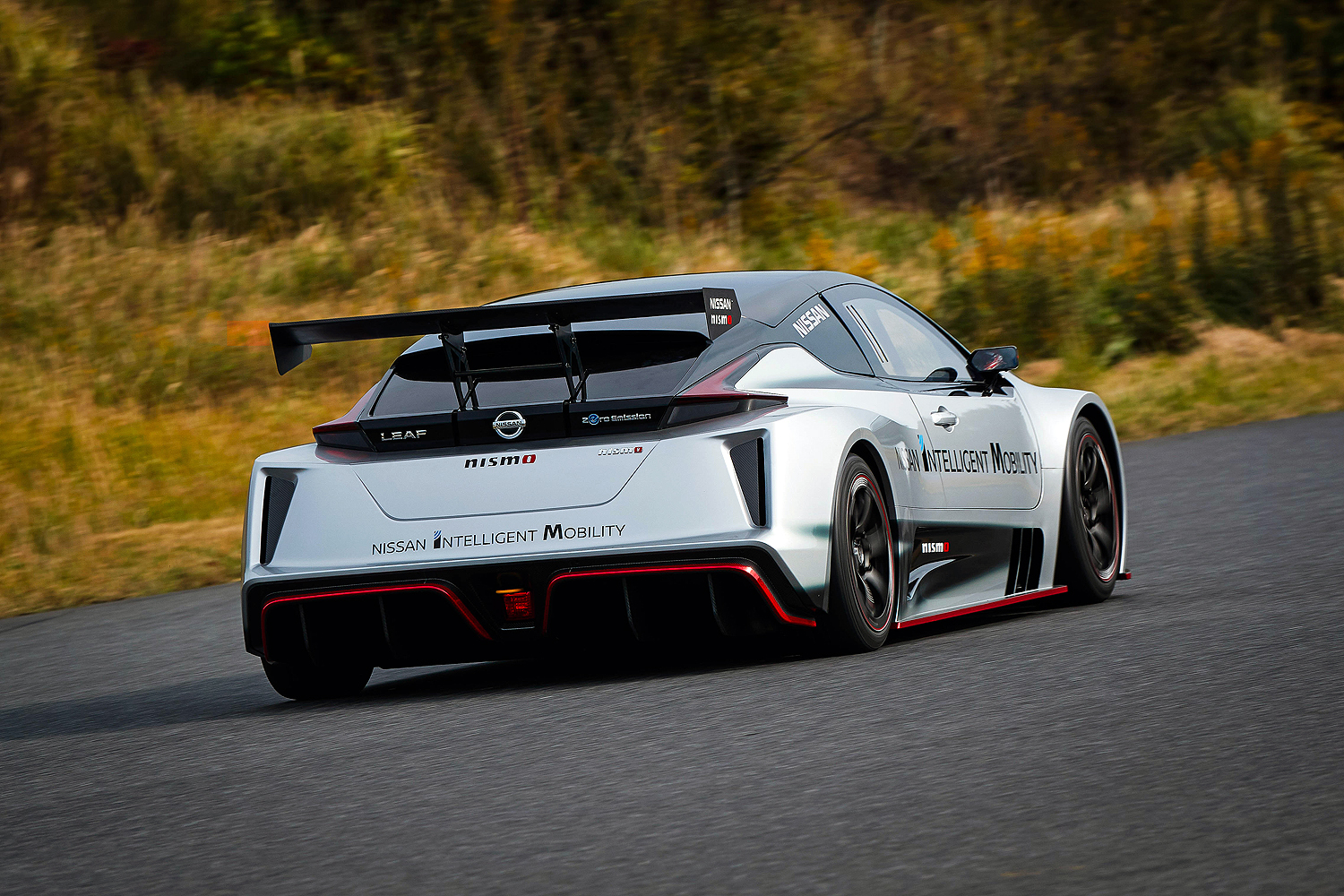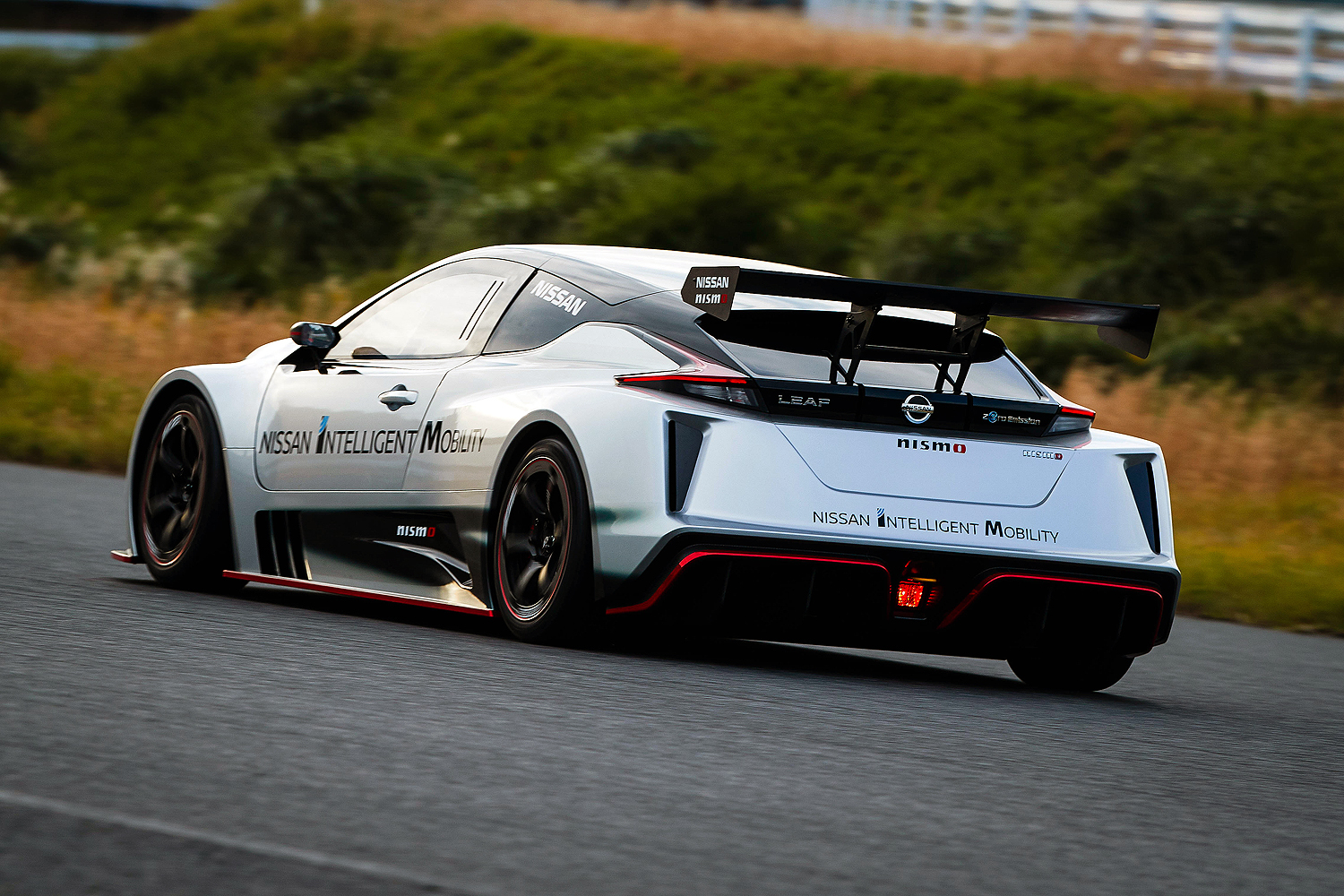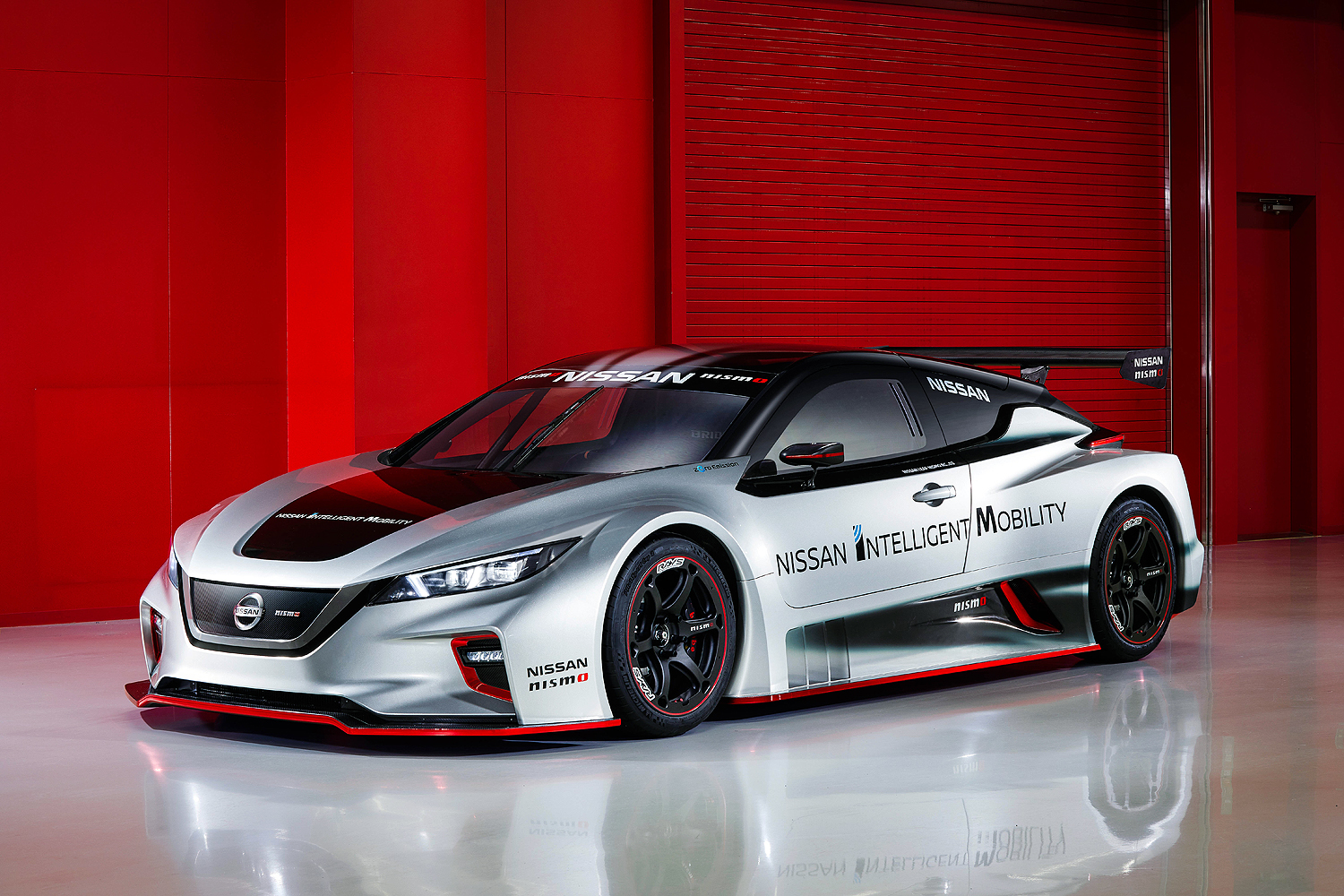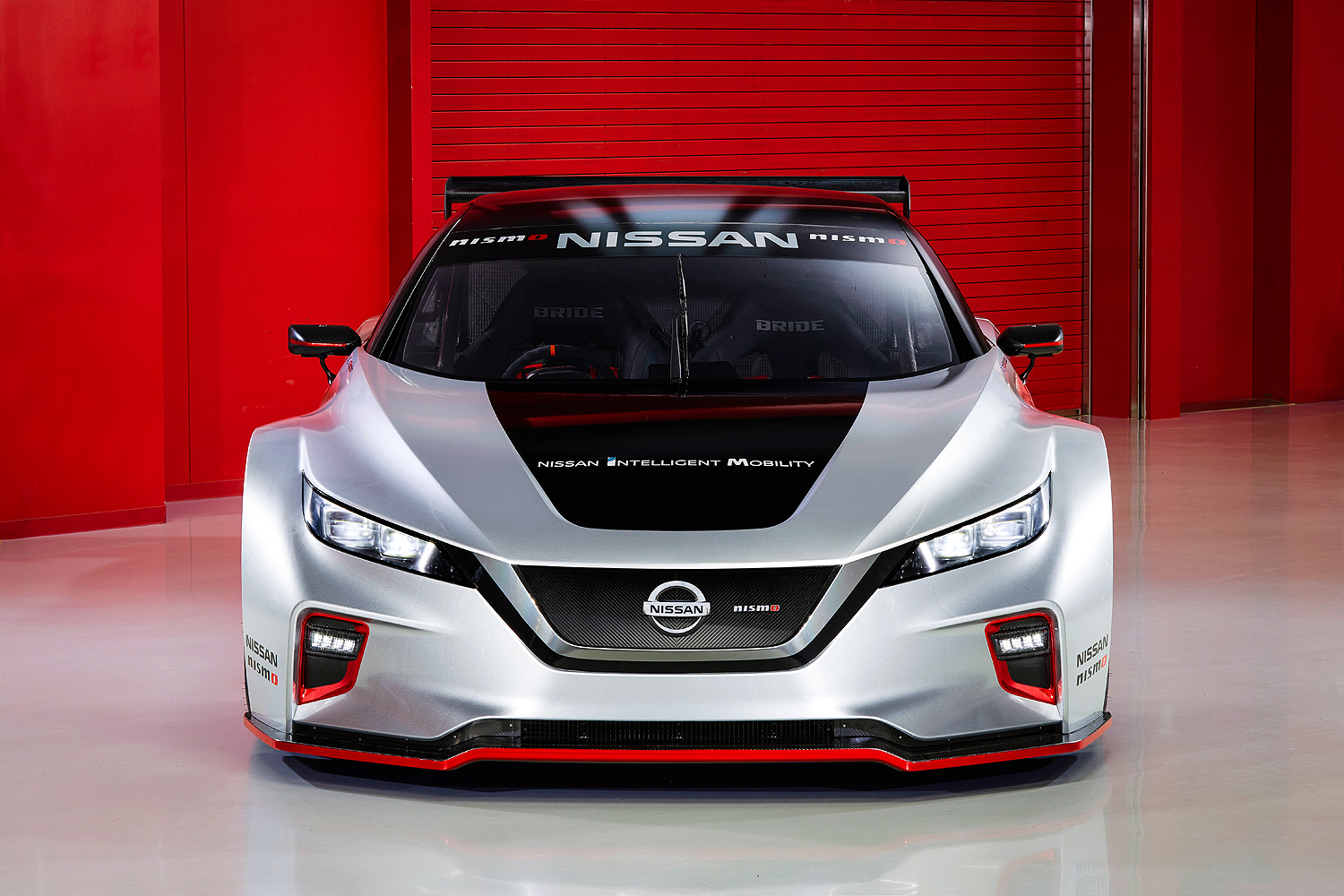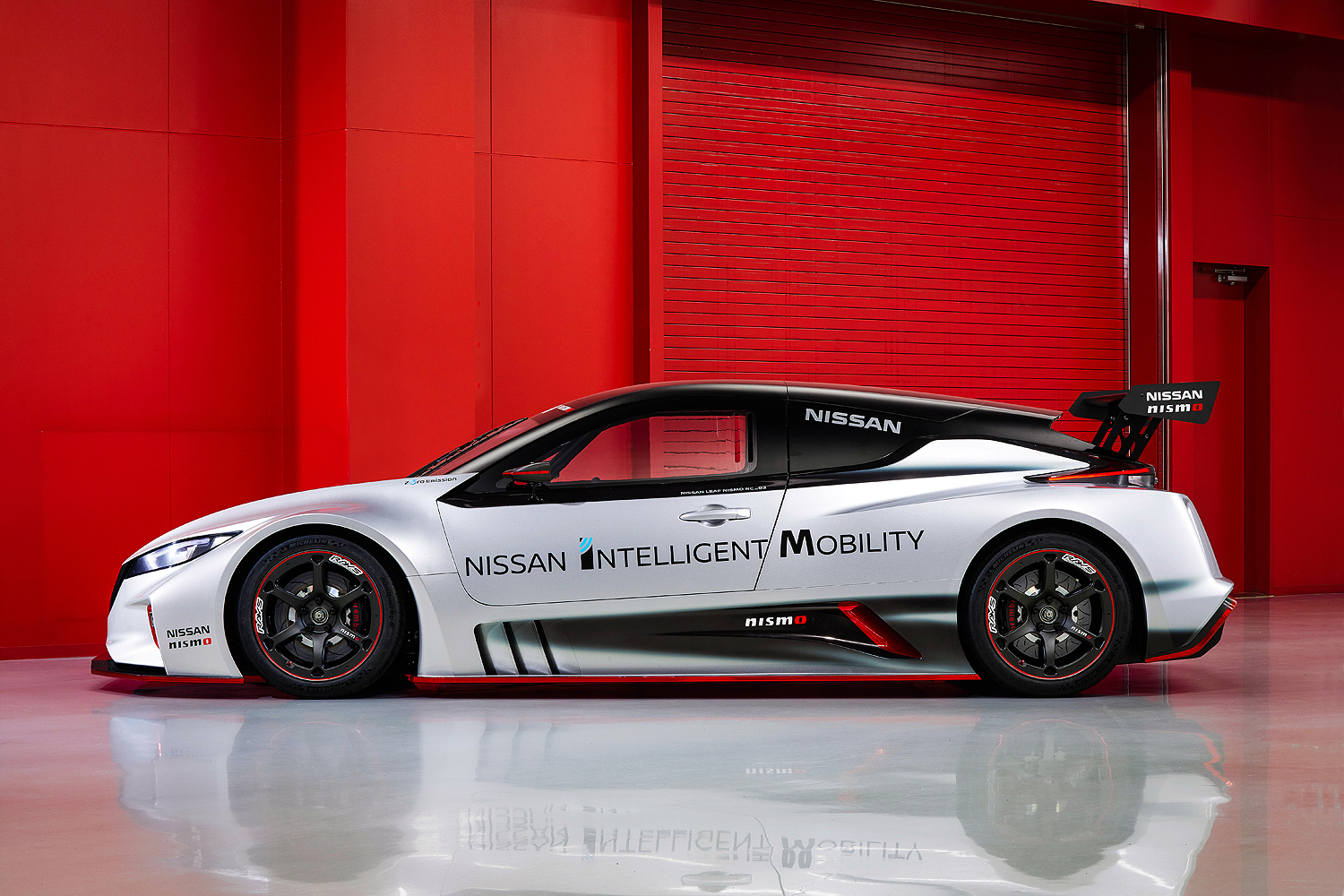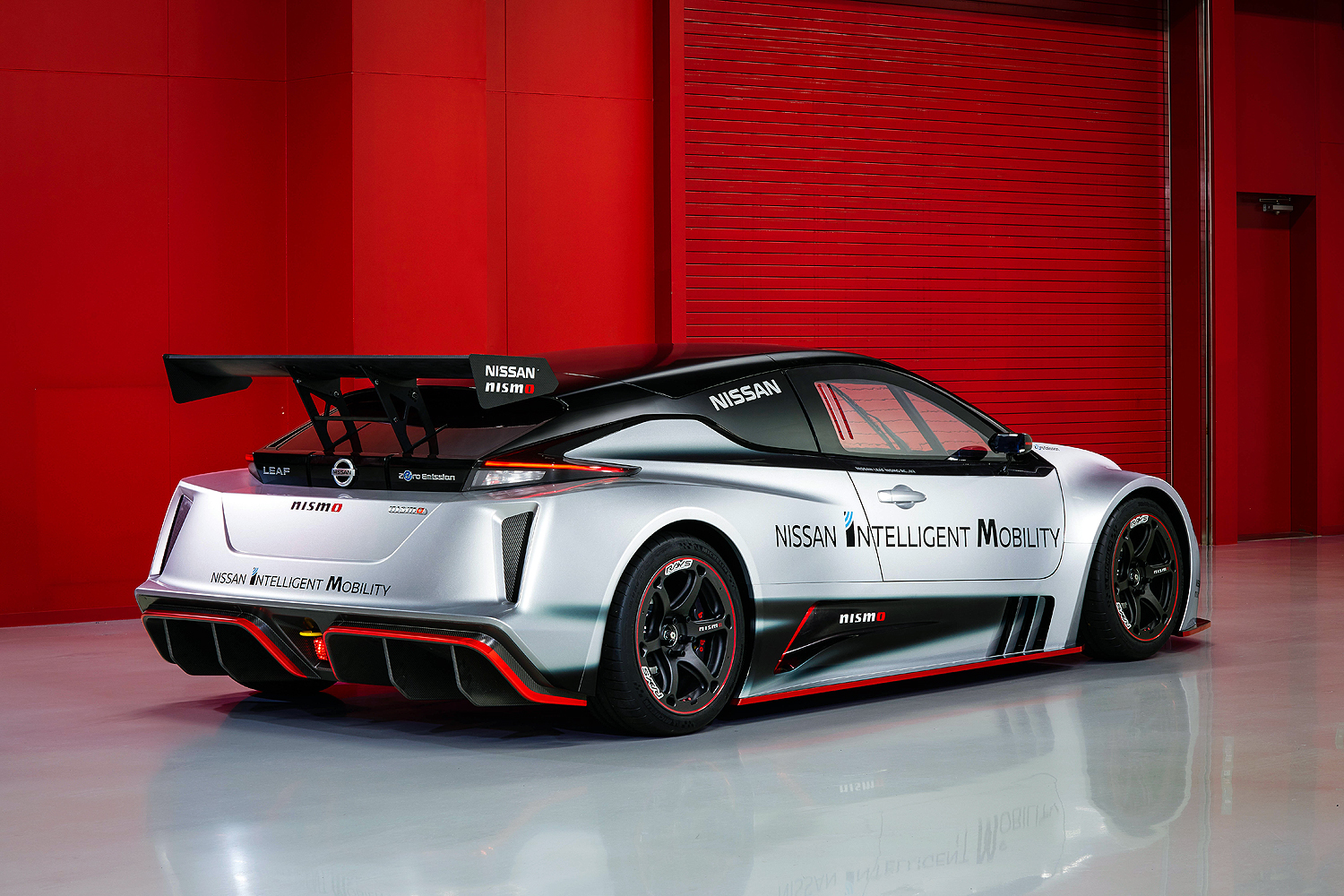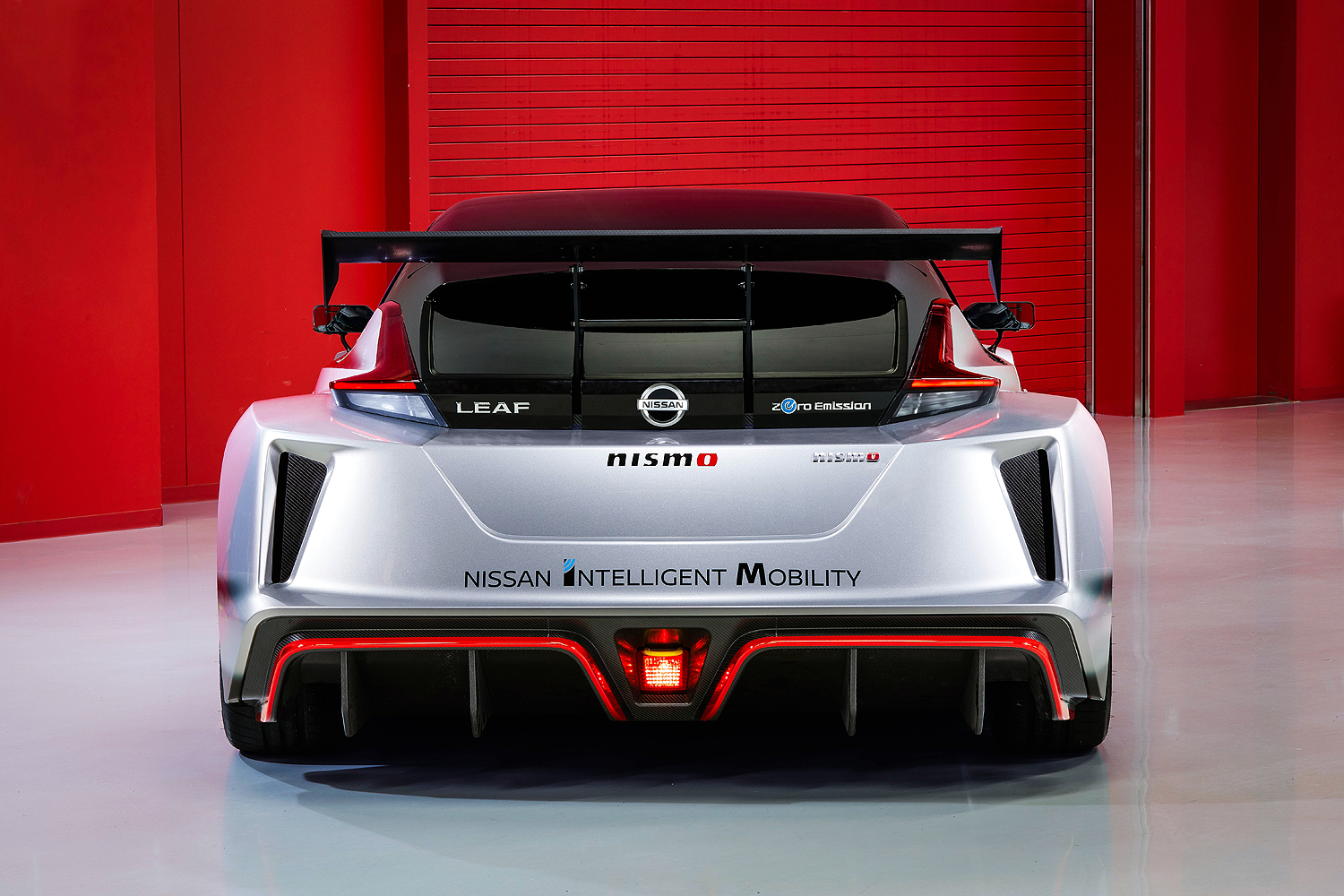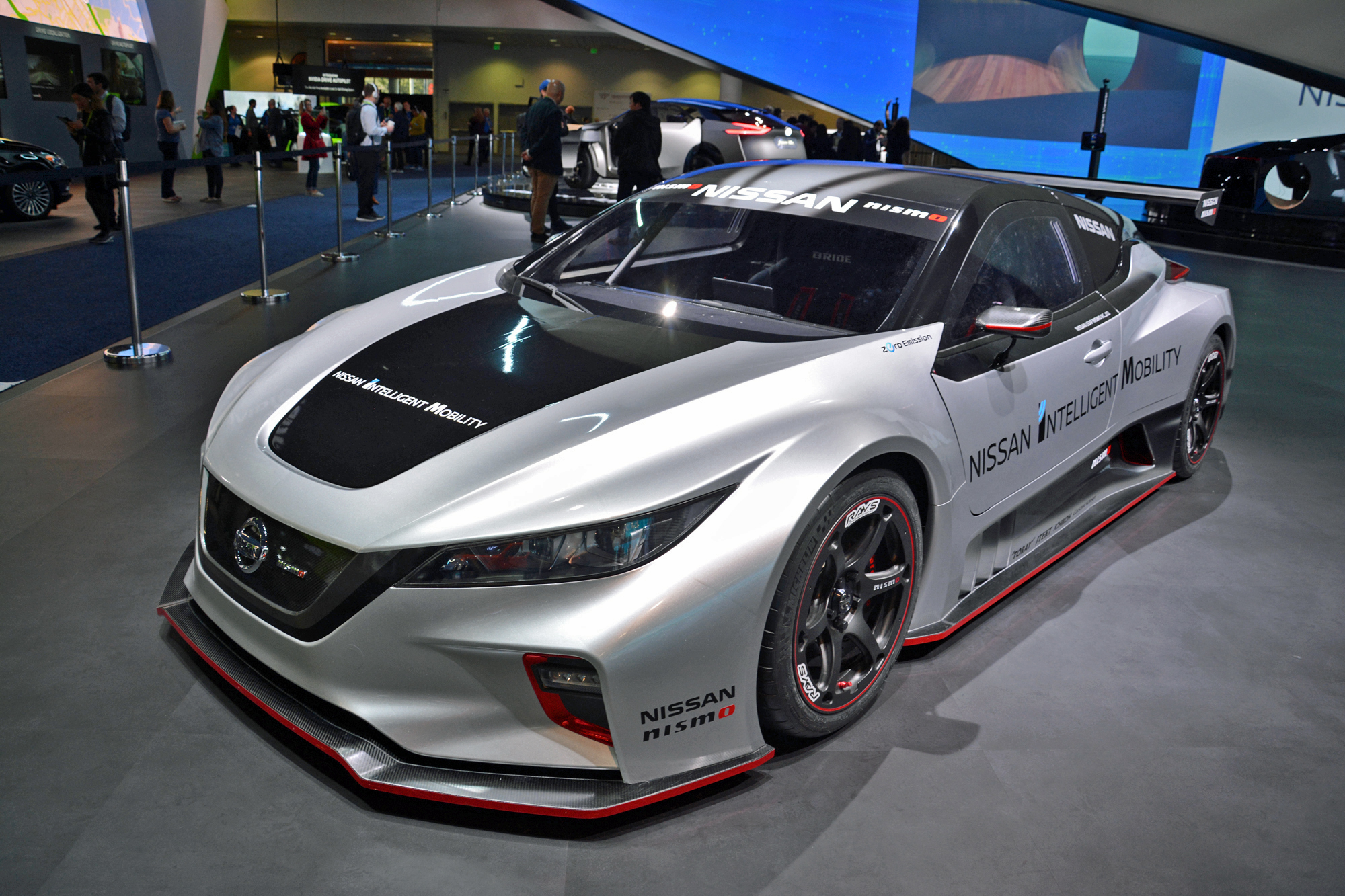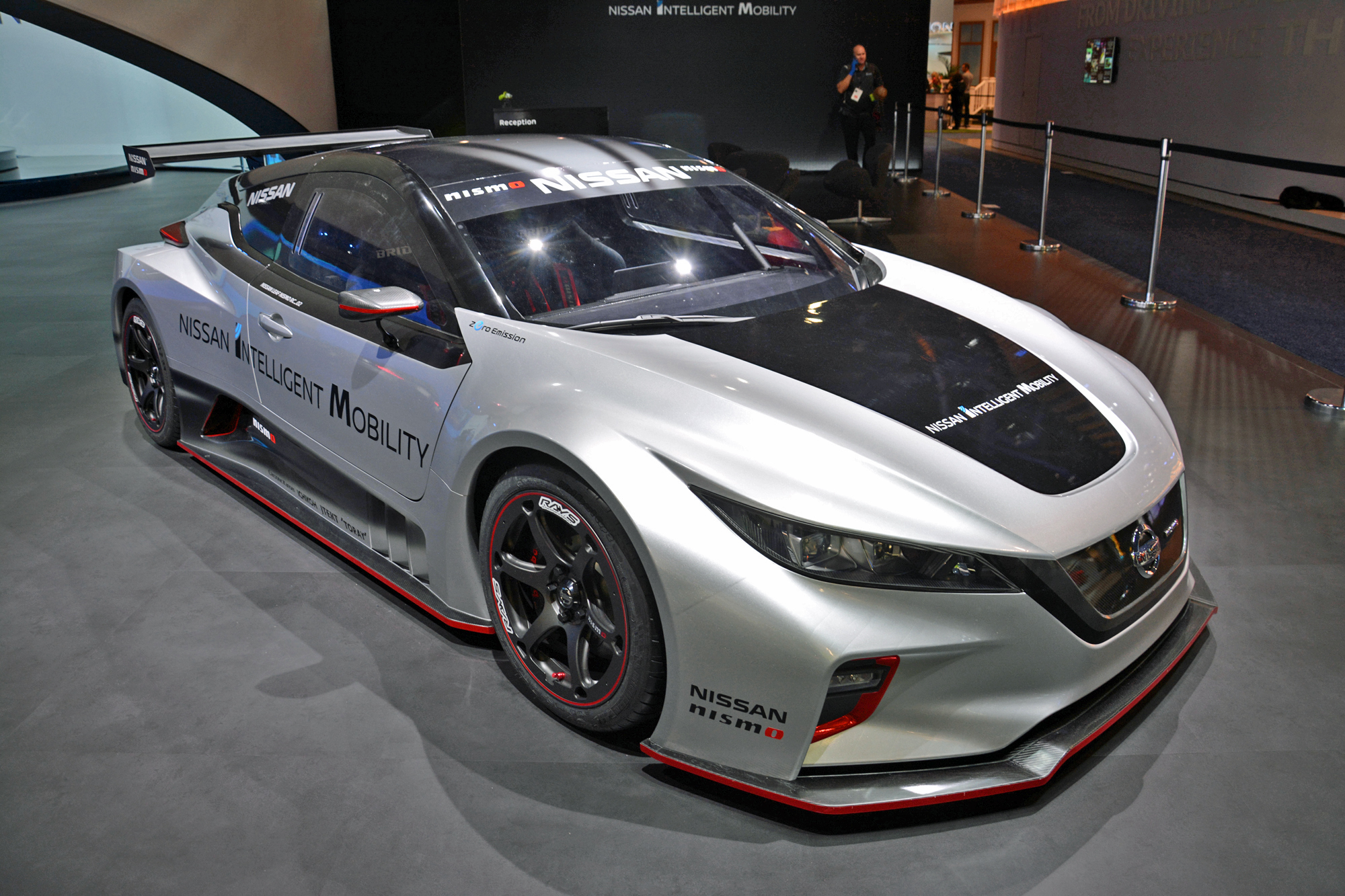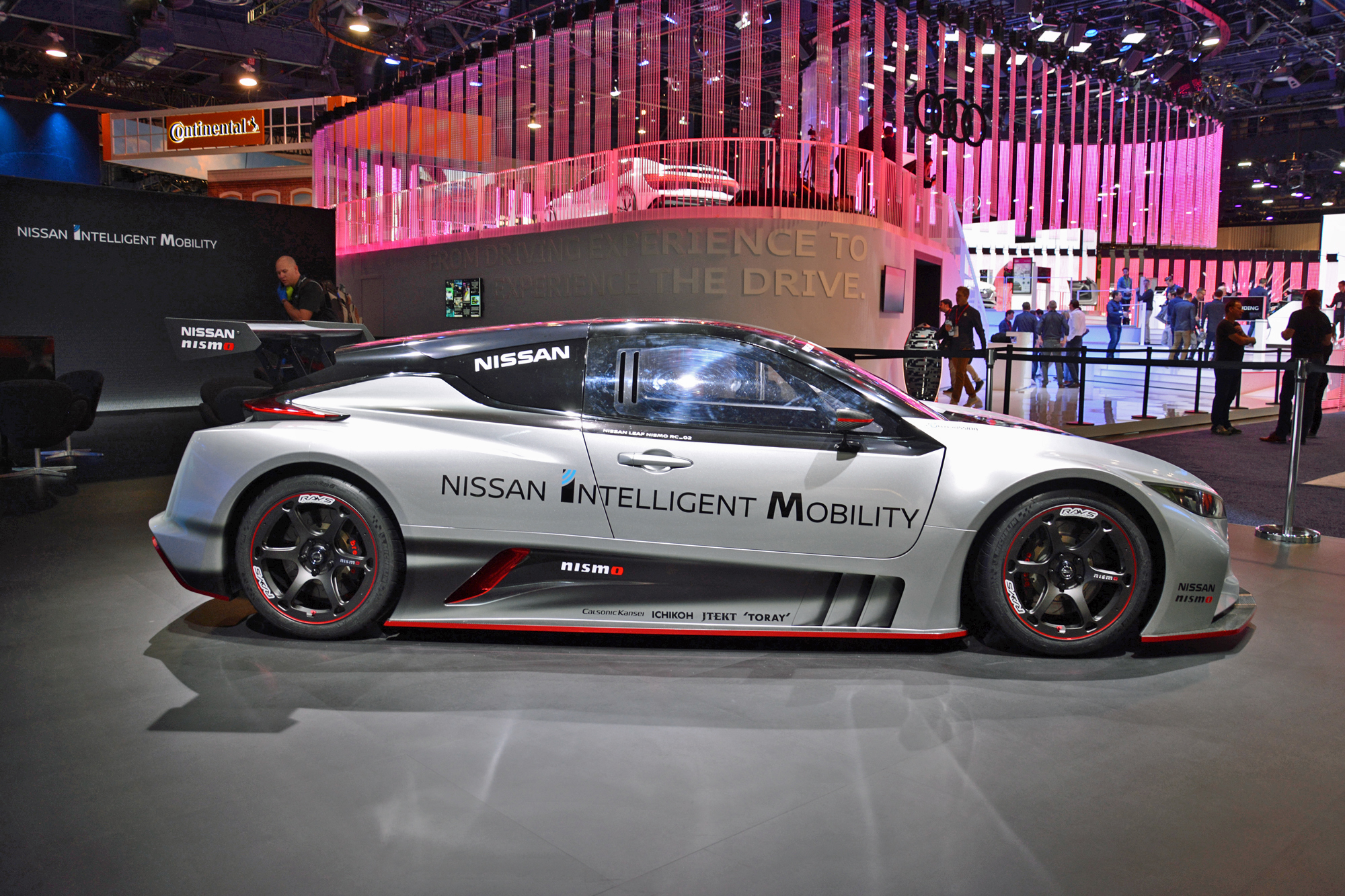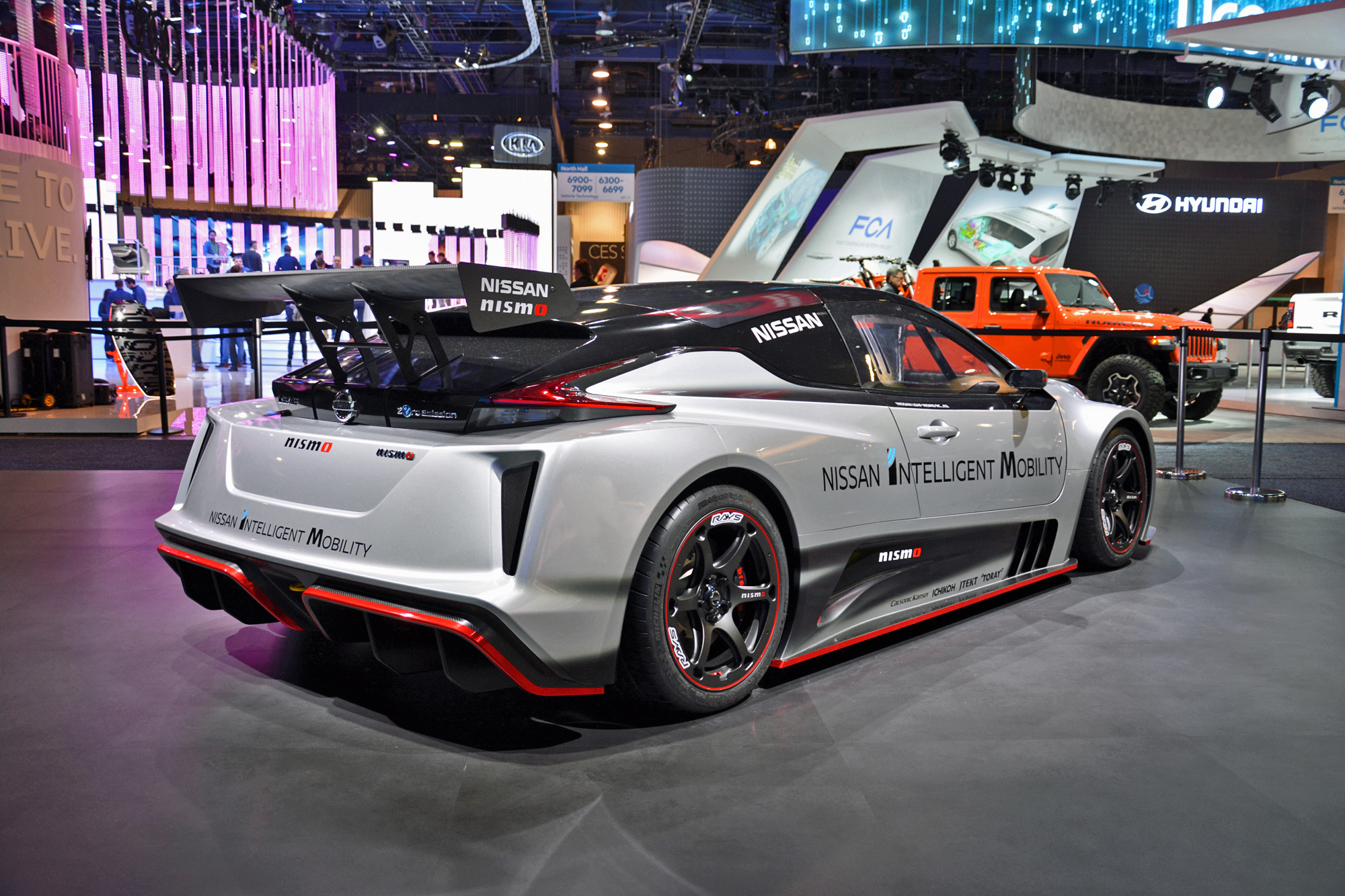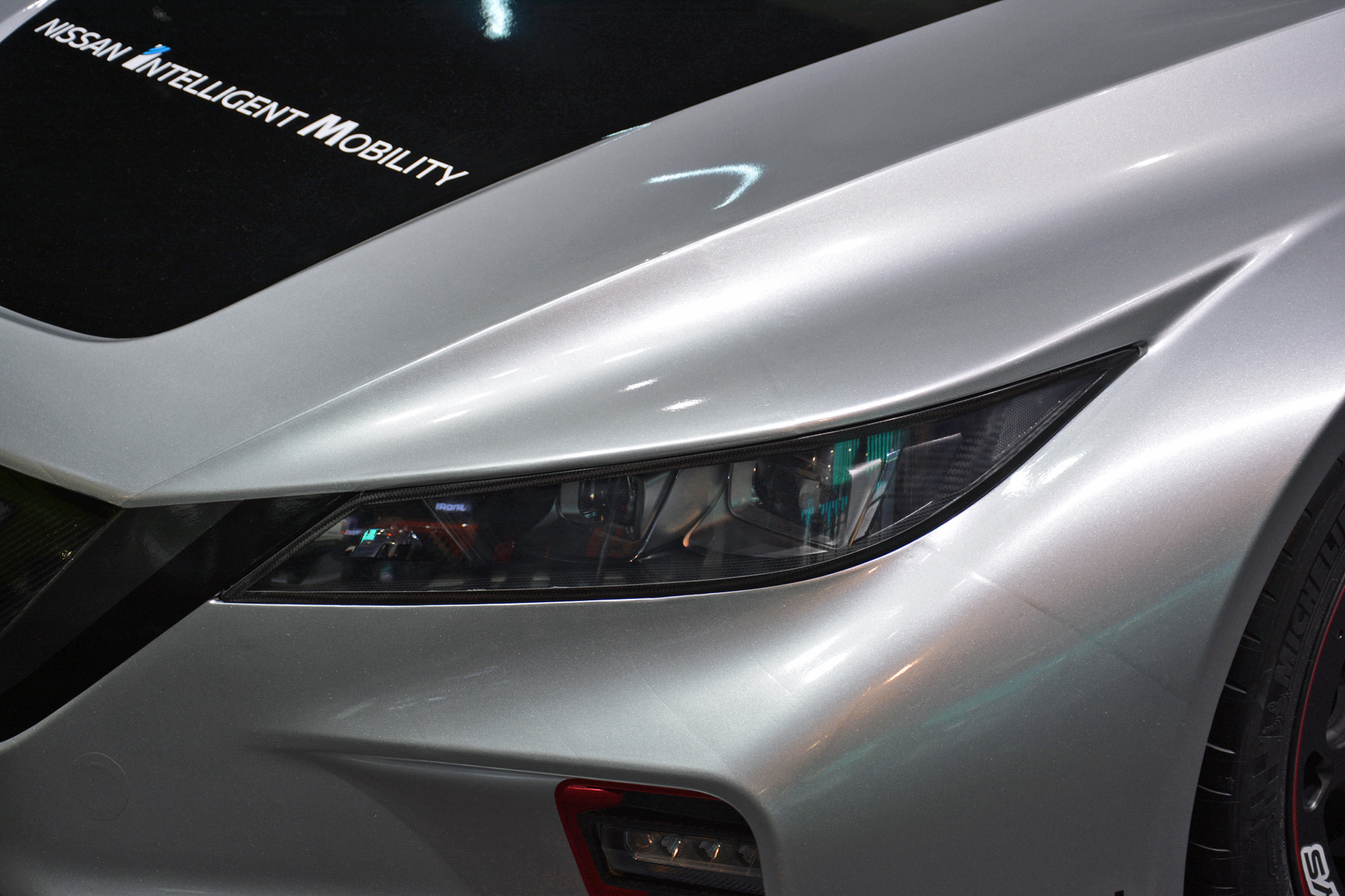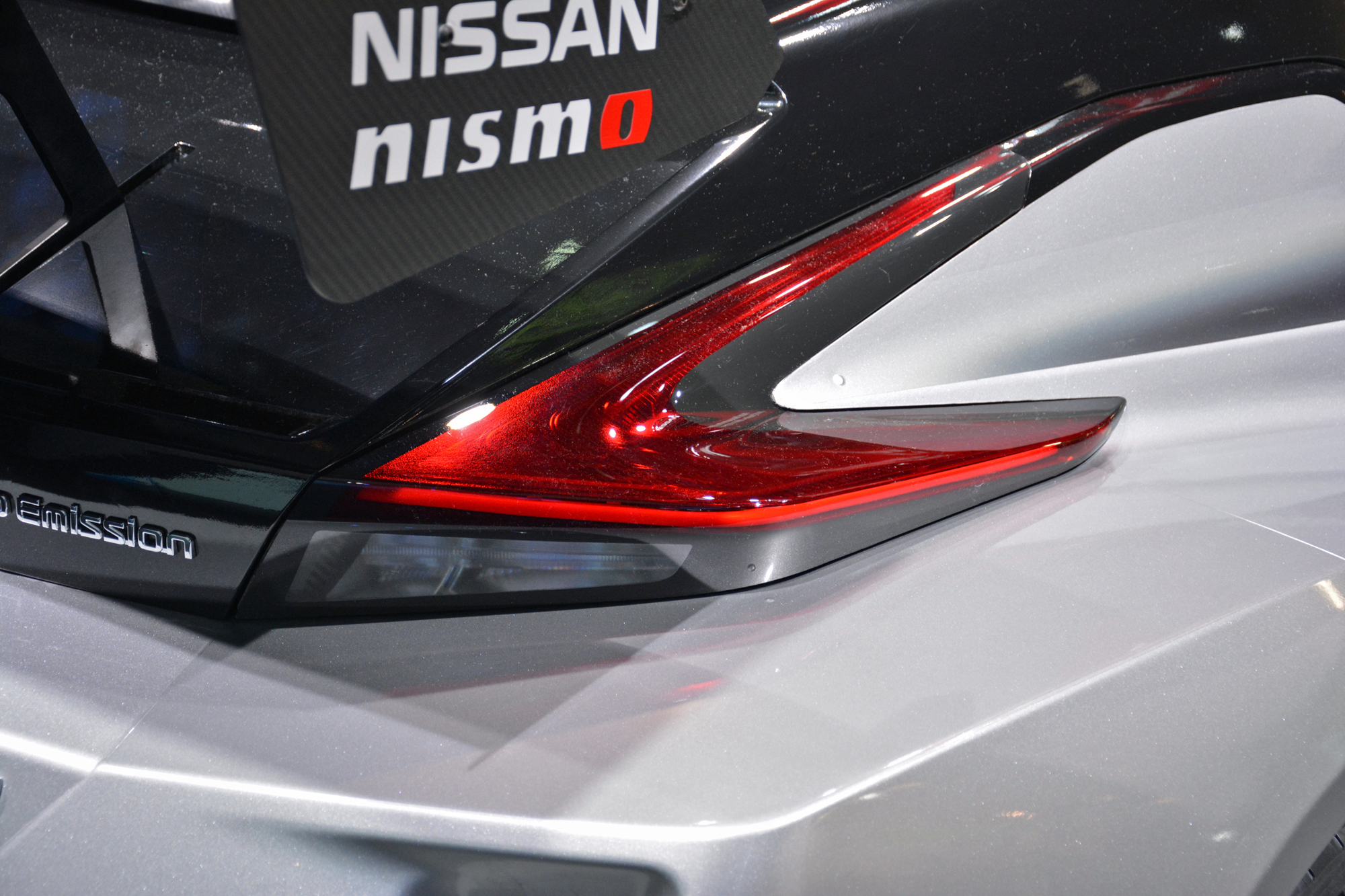In its standard from, the Nissan Leaf is hardly the most exciting car on the market. It’s electric, affordable, and practical, but there’s nothing about it that tugs at the heartstrings of driving enthusiasts. It has potential, however, and the Japanese firm demonstrated just how far it can stretch the concept of electric mobility by turning a Leaf into a battery-powered hot hatch for the track. It made its debut in November 2018, but we saw it for the first time at CES 2019.
The 2018 Leaf Nismo RC is a follow-up to the eponymous model introduced in 2011. Nismo — Nissan’s racing arm — cranked up the performance dial in order to make the new car twice as quick as its predecessor. It’s powered by two electric motors (one over each axle) that work together to zap the four wheels into action with 321 horsepower and a stout 472 pound-feet of torque. The result is a silent, 3.4-second sprint from 0 to 62 mph.
Nissan noted the RC shares its 40-kWh lithium-ion battery pack with the regular-production Leaf sold worldwide. It hasn’t quoted a range figure yet. Using lightweight materials such as carbon fiber to build the car allowed engineers to offset the not-insignificant mass of the battery pack. The RC weighs about 2,700 pounds, a figure that makes it nearly 100 pounds lighter than a Subaru BRZ and a whopping 733 pounds lighter than a stock Leaf.
It helps that there’s not much left of the Leaf on the RC. Every single body panel is new. Nismo made the front and rear sections removable for easy access to the motors, installed fixed windows, added LED lights on both ends, and dropped a sizable wing on the rear-end to create downforce. It’s the same story inside, where the dashboard is a piece of carbon fiber and a tablet replaces all of the instruments.
Don’t start saving up money quite yet; the Nismo Leaf RC isn’t heading for production. Nissan will build six examples of the car to use during demonstration runs around the world. You might see one lapping a Formula E track before a race or racing up the hill at next year’s edition of the Goodwood Festival of Speed. While Nissan hasn’t announced plans for a hotter Leaf, we wouldn’t rule out seeing one sooner or later.
Editors' Recommendations
- VinFast is bringing a mini electric SUV to the U.S., and maybe a pickup, too
- The fastest electric cars, ranked by 0-60 mph acceleration
- Ram EV concept previews truck brand’s electric future
- Nissan wants the 2023 Ariya to be its comeback EV, but the bar has been raised
- BMW shows off an electric car with color-changing paint at CES 2022

